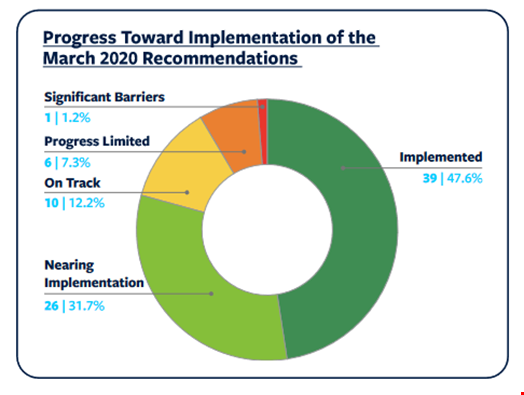The US Cyberspace Solarium Commission 2.0 report outlines ten cyber policy priorities for the next U.S. administration, emphasizing the need to protect critical infrastructure from cyber threats. Key recommendations include developing cloud security certifications, enhancing public-private sector collaboration, and establishing a Bureau of Cyber Statistics. The report also stresses the importance of securing space systems, recognizing their growing role in U.S. infrastructure. As space systems become more integral to national operations, securing them against cyberattacks is vital to maintaining economic and national security. From my perspective in Space Systems Cybersecurity, it’s clear that many of the proposed initiatives—like cloud security certification and continuity planning—would bolster defenses against the ever-evolving cyber threats that target national infrastructure, both on Earth and in orbit. With 80% of previous recommendations implemented, the report stresses the need for persistent action, especially as cybercriminals and nation-states escalate their attacks.
Regarding space systems, the cybersecurity realm becomes even more crucial as space infrastructure grows. Satellites and space systems are increasingly used for critical operations, from GPS to communications, making them valuable targets. The intersection of space technology and cybersecurity means that ensuring protection in space is a vital extension of Earth-based cyber defense, particularly when considering the unique vulnerabilities and attack surfaces present in orbital systems.

Image Source: Cyberspace Solarium Commission 2.0
Infosecurity Magazine. (2024, September 19). US Cyberspace Solarium Commission outlines ten cyber policy priorities. Infosecurity Magazine. Retrieved from https://www.infosecurity-magazine.com/news/us-cyberspace-solarium-cyber/